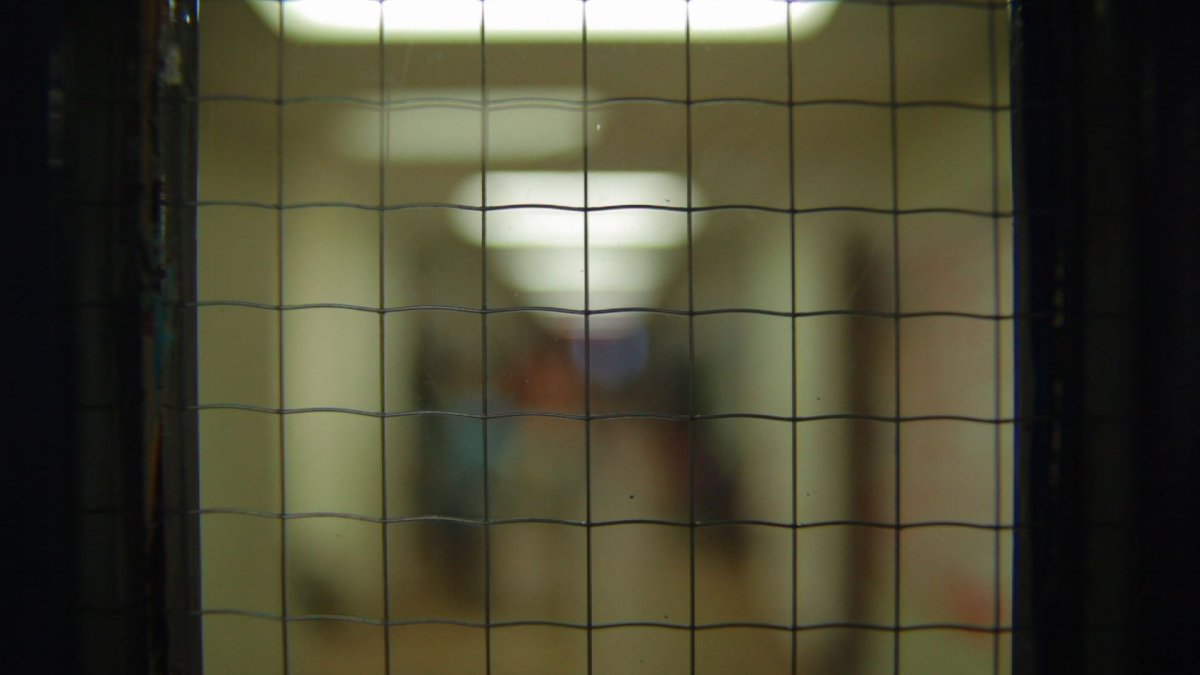A public health expert from the University of Toronto estimates that as many as one wired glass injury a day occurs in Canadian schools.

Wired glass is a product that has been used for years in Canada. But concerns about its safety have prompted changes in the United States to prevent it from being used in areas where people could be hurt. Traditional wired glass was phased out of new construction of schools in 2003 in the U.S. In Canada however, it’s still allowed by provincial building codes based on a standard that hasn’t been updated in 25 years.
Currently no agency in Canada is tracking how often wired glass injuries happen in schools or other buildings.
Laura Rosella, of the Dalla Lana School of Public Health at the University of Toronto, believes better data should be kept to inform policy makers on the dangers of this material. Rosella used calculations of wired glass injuries made in the United States to estimate as many as 368 wired glass injuries a year occur in Canadian school-aged children.
“Accidents are going to happen but if the severity of these injuries is something that could have been prevented, if a different material was used, then that is where there is a big concern,” says Rosella.
Injuries can be severe and can change the course of young people’s lives
When Tyler Dickie was in Grade 11, he was an active teenager involved in competitive sports and looking to pursue a career as an underwater welder. Things changed for him in June 2007, while leaving his Amherst, N.S., school on lunch break. A door with wired glass windows he had opened dozens of times before broke as he pushed it and his arm went through the glass.

Get daily National news
Tyler was rushed to the hospital with life-threatening injuries. He was told there was a chance his arm could be amputated and he says he coded twice. His life and arm were saved but today he suffers from permanent nerve damage which has left him unable to do the physical work he had planned for his future. He says in the years after his traumatic incident he developed panic attacks he believes are related to the experience.
Jaiden Hyland of Toronto lives with facial scarring after he smashed through a wired glass window at his high school while roughhousing with a friend in 2013.

“Having to look in the mirror every day and just seeing some huge scars on your face. It would bother anyone,” says Hyland.
Both Hyland and Dickie believe more precautions should be taken to prevent these types of injuries.
“It shouldn’t be anywhere with a whole bunch of kids,” says Hyland. “Does it take for someone to die before you change it?” he adds.
Both are suing their school boards for their injuries. The school boards say these injuries were a result of acting recklessly at school.
Claims totalling millions of dollars
Lawsuits like these are adding up. The insurer for most school boards in Ontario, the Ontario School Boards’ Insurance Exchange (OSBIE) told 16×9 in an email that in the past 14 years, it has paid out just over $5.8 million for 114 claims arising from wired glass injuries. OSBIE has been warning school boards in Ontario since as early as 2001 that wired glass can cause “horrible injuries.”
“It’s shocking that the schools and the school boards know of the danger – they have to know of it – and they’re still replacing or putting up wired glass,” says Michael Smitiuch, an injury lawyer representing both Dickie and Hyland.
Smitiuch says after he learned of this issue through his clients, he petitioned his own children’s private school to replace wired glass, and they did. He says other parents need to know about this issue.
“They need to know that it causes severe injury, and they need to bring the issue forward to their school board. They need to make the principal aware. They need to make their local school trustee aware, and they need to call for action,” says Smitiuch.
Small changes on the horizon for some school boards, won’t affect most schools
16×9 contacted some of the largest school boards in the country. None indicated plans to remove currently installed wired glass. However, some are looking into phasing out wired glass in new construction.
The Department of Education in Newfoundland and Labrador for example, has stated a preference that wired glass not be used in any new schools across the province. The Toronto District School Board (TDSB) has decided to stop using it as well.
These changes, while significant, will not affect wired glass already installed in hundreds of schools. It could take decades before this glass is out of schools – even in places taking action to phase it out.
The TDSB, where Jaiden Hyland was injured, says there have been as many as nine wired glass injuries in the past five years. 16×9 asked TDSB why, if it is aware of the dangers of this glass, it is not taking steps to remove the glass from schools.
“It’s just not possible financially – to replace every single wired glass window in the Toronto District School Board, given the countless millions of dollars that it would cost,” says Ryan Bird the spokesman for the board.
Building codes haven’t updated the standards for wired glass since 1990. The organization charged with updating these guidelines says a new standard will be available in mid to late 2016.
However, it could still take years for a new standard to be adopted into building codes across the country – and much longer until wired glass is removed from Canadian schools.
16×9’s “Clear Danger” airs Saturday, Jan. 30, 2016 at 7pm.









Comments